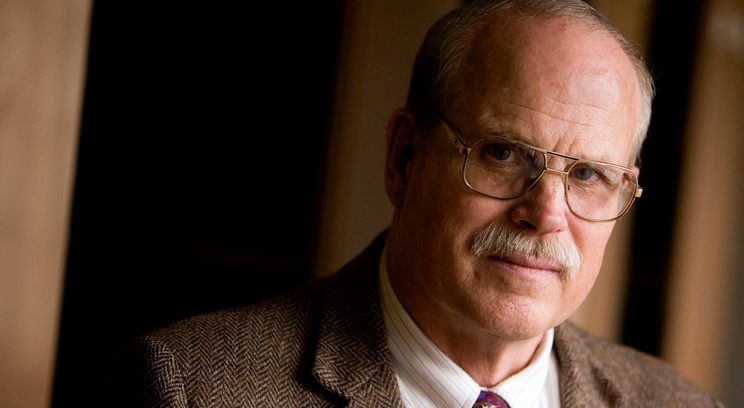I entered teaching in 1985, leaving a partnership position with a major Twin Cities law firm where I practiced corporate and securities law. The year 1985 also ushered in great change in Delaware corporate law,* one of my specialties, due to the destabilizing corporate takeover movement of that tumultuous decade. Remarkably, significant change continues today in what many people wrongly regard as a stable or even “staid” area of law. I write about these developments.
My approach to the dynamism of business-law subjects stems from certain core beliefs. I am a fervent believer in the enormous benefits to be gained from a robust and (relatively) free business enterprise sector. This, however, is tempered by my equally adamant belief that corporate leaders must exercise prudent, moral judgment, shaped at once by the undoubted need to compete and succeed, and by an acute appreciation of the corporation’s far-reaching influence on the larger society. Without such mindfulness, many business leaders are no friends to our business enterprise system, inviting instead, by their actions, the very over-regulation they frequently decry.
In short, I see the business sphere as one more moral endeavor, capable of much good and much bad. Corporate lawyers, and the professors who teach them, must attend to a corresponding lawyerly responsibility to give sound moral and legal counsel to those who wield such power.
Corporate Purpose
My recent scholarship reflects these views. I have just published an article in the Delaware Journal of Corporate Law that, first, seeks to streamline the confusing place of the infamous “business judgment rule” in corporate law. The business judgment rule is a judicial standard of review that courts use when a board of director decision is attacked (or one or more directors are sued), that leads courts to presume that the board behaved properly and that leads courts to avoid examining after-the-fact the substantive merits of a board decision.
In short, I argue that the rule should be de-emphasized, if not outright scrapped, in favor of a straightforward analytical focus on fiduciary duties. Emphasizing the fiduciary duties of directors, officers and controlling shareholders will simplify and improve legal counsel’s advice to key corporate decisionmakers as well as enhance those leaders’ understanding of how those duties pervasively bear on their activities. And such a focus will also greatly facilitate judicial analysis of alleged wrongdoing by those persons.
But the second part of that article treats another subject of deep interest to me – the subject of corporate purpose. I argue that, contrary to widespread belief, there is no enforceable legal obligation for corporations to maximize profits or share price. To be sure, that is a deeply ingrained norm and widely followed practice – part of American business “lore” – but it is not a legal requirement. Corporations have considerable latitude to seek and enhance profits – not necessarily maximizing them – while advancing other worthy goals as well. Regrettably, law schools and business schools generally teach otherwise. The result is a business culture often devoted solely to the pursuit of wealth, counseled by lawyers and bankers who should know otherwise but who, instead, frequently just go along. This is a subject of enormous importance to society at large. All citizens have an interest in how the corporate institution influences our daily lives together. Law in a free society ultimately should align with underlying shared social beliefs. I do not believe a singular corporate focus on maximizing the well-being of shareholders squares with deep-rooted beliefs. This dissonance between business norms and social norms accounts for the awkward position of business being at once critical to our economy and being viewed with significant suspicion and mistrust.
I follow up on the question of corporate purpose in two subsequent articles. One of these, a collaboration with University of St. Thomas’ Professor Michael Naughton and businessman Bill Bojans, was just published in the Journal of Catholic Higher Education. It argues that Catholic business schools are misteaching business purpose. Like their secular counterparts, they follow the orthodox canon of stressing shareholder value maximization above all else. In doing so, they disregard the Catholic Social Tradition’s far richer understanding of both the individual and the business company itself as a “community of whole persons.” We highlight in our article how Catholic schools can draw on their own deep intellectual tradition to address an issue of burning contemporary importance in a more fulsome and healthy fashion.
Selling Control of a Company
Another article, due out in the spring of 2014, takes on a cornerstone doctrine in Delaware corporate law, the so-called “Revlon” doctrine. Under this principle, once a corporate board of directors decides to sell control of a company, they must focus solely on immediate value maximization for investors. No other consideration is permissible; even long-term value is out of bounds. Adopting a novel remedies perspective on recent cases decided under Revlon, we find that while courts continue to mouth allegiance to the doctrine, in fact they are refusing to grant remedial relief. For example, in 15 preliminary injunction actions brought from 2008 through October of 2013, only one injunction was granted to halt a proposed merger, and that was for only 20 days. I have spoken on this at several law schools, including Minnesota, Georgia State and North Dakota, and at a recent Chicago conference devoted to corporate litigation.
We conclude in our article that Delaware courts, while stopping short of an outright disavowing Revlon, are becoming dissatisfied with its emphasis on short-term value. We consider this to be a positive development and a deliberate effort to communicate to business leaders that, in all settings, they should act for the long-term good of the company. Doing so would align law with more widely shared beliefs about corporate purpose and serve to stem, one hopes, the current tendency to operate businesses in a myopic short-term manner.
Teaching Corporate Law
One of the delights about being a corporate law scholar is that Delaware judges, unlike many judges today, pay keen attention to law professors. I am heartened not only to know many of those judges personally but to know they read and cite my work. Last fall, I was invited to deliver the Pileggi Distinguished Lecture at the DuPont Hotel in Wilmington, Del. That lecture was attended by numerous judges and lawyers. It was a special treat to see several former students in the audience, now lawyers counseling clients in their own right.
What we professors say in class to our students and what we write for our colleagues in the academy, in the practicing bar and on the bench matters a great deal. We must step away from the daily fray and take a clear-eyed and hard look at key issues. As we do so at St. Thomas, we should insist that those we teach and write for remember that, as law students and lawyers, they are moral agents possessing broad discretion. How any one of us does that, whether by heading a global corporate behemoth or by defending the friendless, will dramatically alter lives. I am glad my colleagues at St. Thomas keep that in the forefront for all of us.
*Editor’s note: For those not familiar with Delaware law, the vast majority of public corporations in the United States are organized under it; thus, its statutes and judicial decisions are critical to the governance of many large companies.
Author: Lyman Johnson is the LeJeune Distinguished Chair in Law at the St. Thomas School of Law, and the Robert O. Bentley Professor of Law at Washington and Lee University School of Law in Lexington, Va. He specializes in corporate and securities law and has spoken to countless academic and lawyer audiences. His scholarship has appeared in leading law journals such as Columbia, Michigan and Texas, and many others. He frequently consults with law firms and serves as an expert witness on high-stakes corporate litigation.
Read more from St. Thomas Lawyer.





